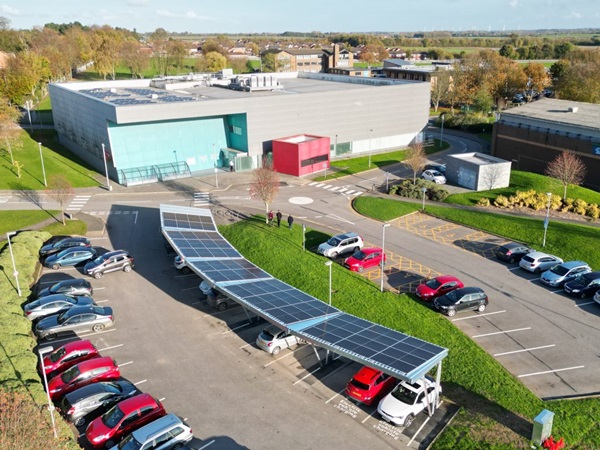How East Riding Council is harnessing data to drive smarter energy decisions across the council’s estate
As the public sector intensifies its push toward net zero, East Riding of Yorkshire Council is showcasing how sustainability can fuel innovation, operational efficiency, and long-term impact.
Faced with the challenge of decarbonising its estate, the council is proving that environmental responsibility can be a catalyst for transformative change.
In a recent conversation with TEAM Energy, Robin Barmby and Stephen Fisher, Principal Asset Officers at East Riding of Yorkshire Council, shared insights into their forward-thinking energy strategies. Their work highlights how data informed decisions and inventive approaches are delivering both environmental benefits and significant cost reductions.
Implementing energy efficiency measures
The council has made significant advances in solar energy, investing more than £2 million in rooftop installations since 2012, supported by the Feed-in Tariff initiative. Several schools have also benefited from similar initiatives, with one of the most impactful efforts involving revisiting previously excluded sites and finding innovative ways to install solar panels.
“We’ve had the most success with our solar panel rollouts,” said Robin Barmby, Principal Asset Officer. “Revisiting sites that were initially omitted and finding innovative ways to install panels has been particularly rewarding.”
A standout project includes a small-scale solar farm connected to a high-consumption caravan park, where generation closely matches peak demand. Stephen Fisher, Principal Asset Officer, also highlighted the integration of photovoltaic systems into the council’s annual roofing programme for council-owned housing. Paired with insulation upgrades, this has emerged as the most cost-effective way to enhance EPC ratings in residential properties.
Elevating energy efficiency projects through training and technology
Stephen Fisher stressed the value of targeted training for facilities managers, especially around optimising Building Management Systems (BMS) to cut energy use. The Climate Change team also plays a key role in promoting sustainable practices and raising awareness across departments.
Robin Barmby explained how technology has helped identify inefficiencies. Through benchmarking and submetering, the council can pinpoint specific zones or equipment responsible for poor performance, making the process more effective than traditional energy audits.
Innovative technologies with measurebale results
One of the most impactful technologies adopted is the Variable Speed Drive (VSD), which adjusts motor speed based on real-time demand. This has delivered substantial energy savings, particularly in leisure centres, with a rapid return on investment.
Delivering cost savings and carbon reduction
Solar initiatives have driven the largest reductions in both carbon emissions and energy costs. LED street lighting upgrades, featuring percentage dimming, have also contributed to long-term savings across the estate.
Unlocking funding for energy efficiency initiatives
The council has actively pursued funding to support its energy goals. In the past year alone, it has secured around £6.5 million, enabling nearly £17 million in project delivery. Funding sources include the Public Sector Decarbonisation Scheme (PSDS), the Mayoral Fund, Sport England’s Swimming Pool Support Fund, and Warm Homes funding.
Advice for other councils
Robin Barmby recommends starting with demand reduction, followed by efficiency improvements, and finally renewable energy deployment. Stephen Fisher adds that data analysis and benchmarking should be the foundation for understanding estate performance and prioritising action.
Andrea Shoel, Business Development Manager at TEAM Energy, said:
“East Riding of Yorkshire Council’s approach to energy efficiency is a testament to the power of data-driven decisions and innovative solutions. Their success story is an inspiration for other councils aiming to achieve similar goals.”
Looking ahead
East Riding of Yorkshire Council’s energy journey is a powerful example of what’s possible when data, innovation, and strategic thinking come together. By focusing on demand reduction, efficiency, and smart deployment of renewables, the council has delivered measurable carbon and cost savings. Their success highlights the importance of long-term vision, internal expertise, and a willingness to revisit legacy projects with fresh eyes.




